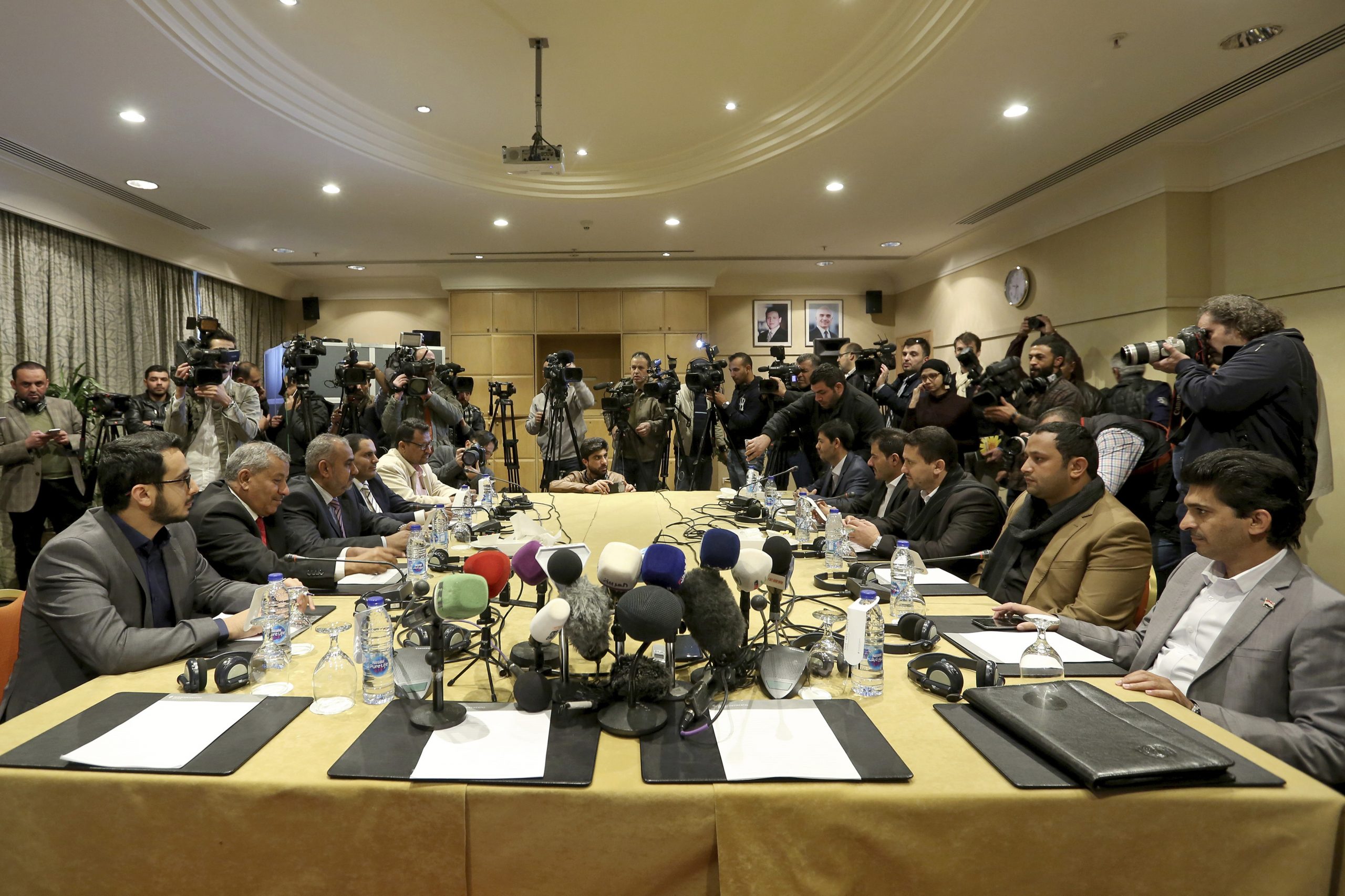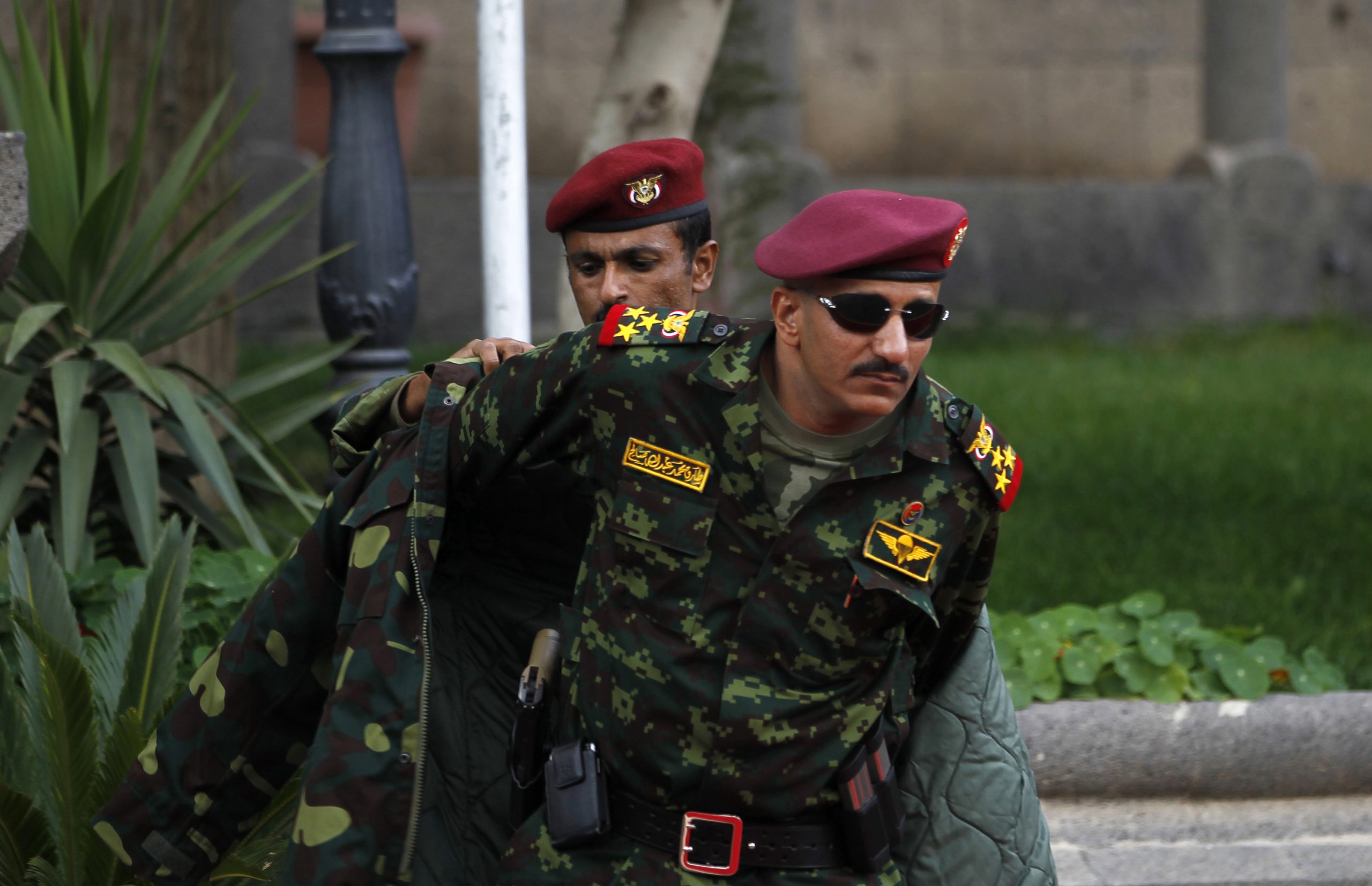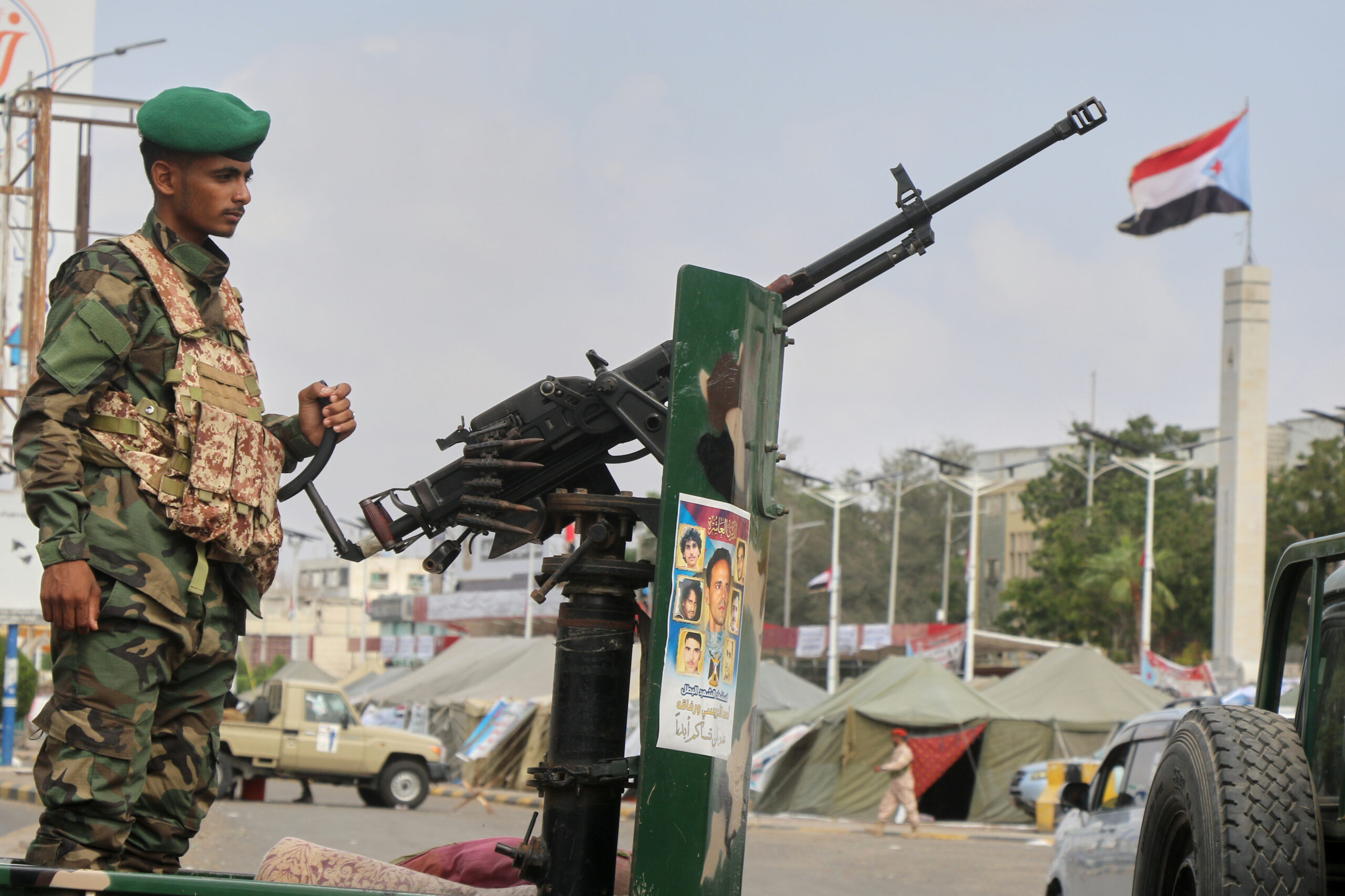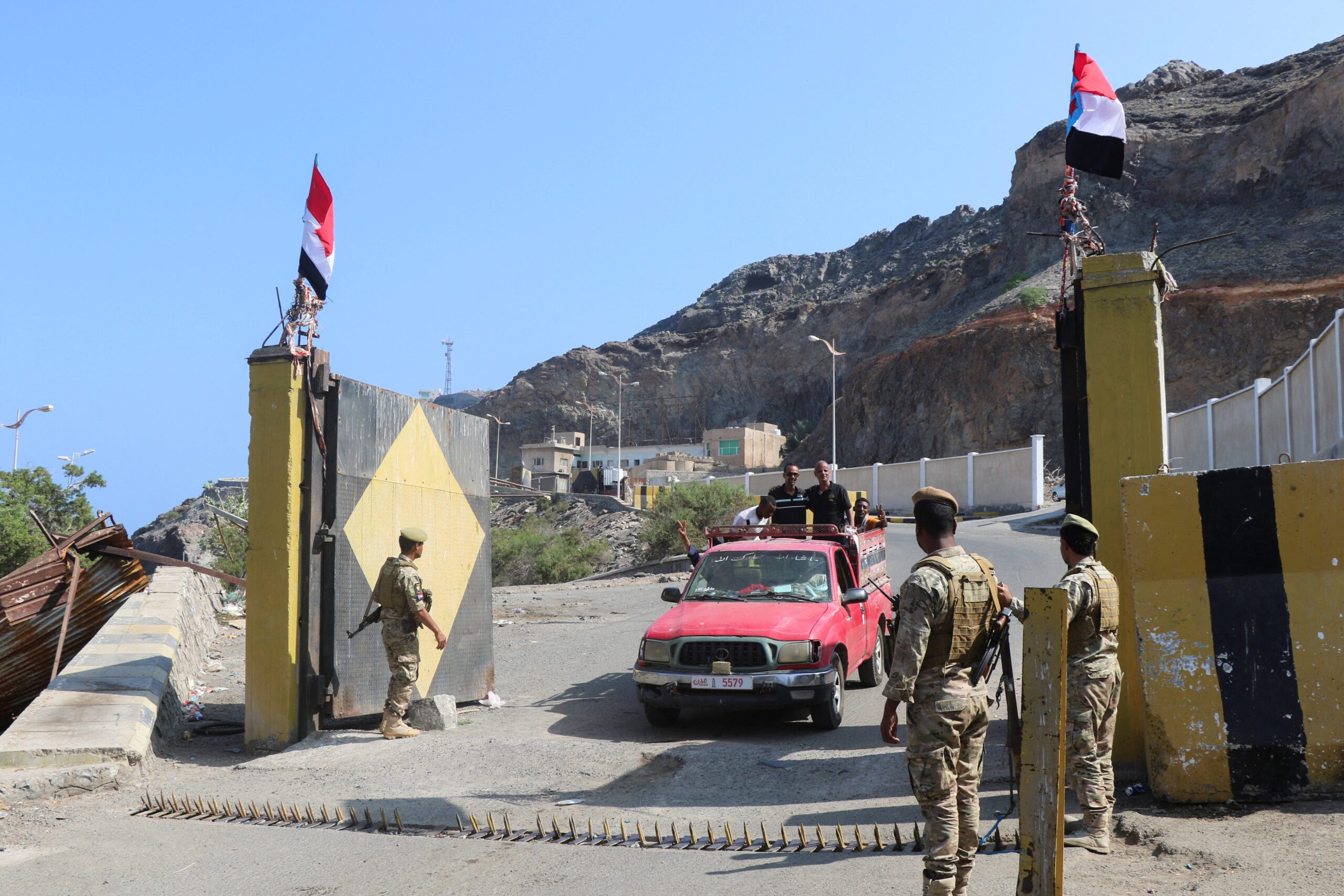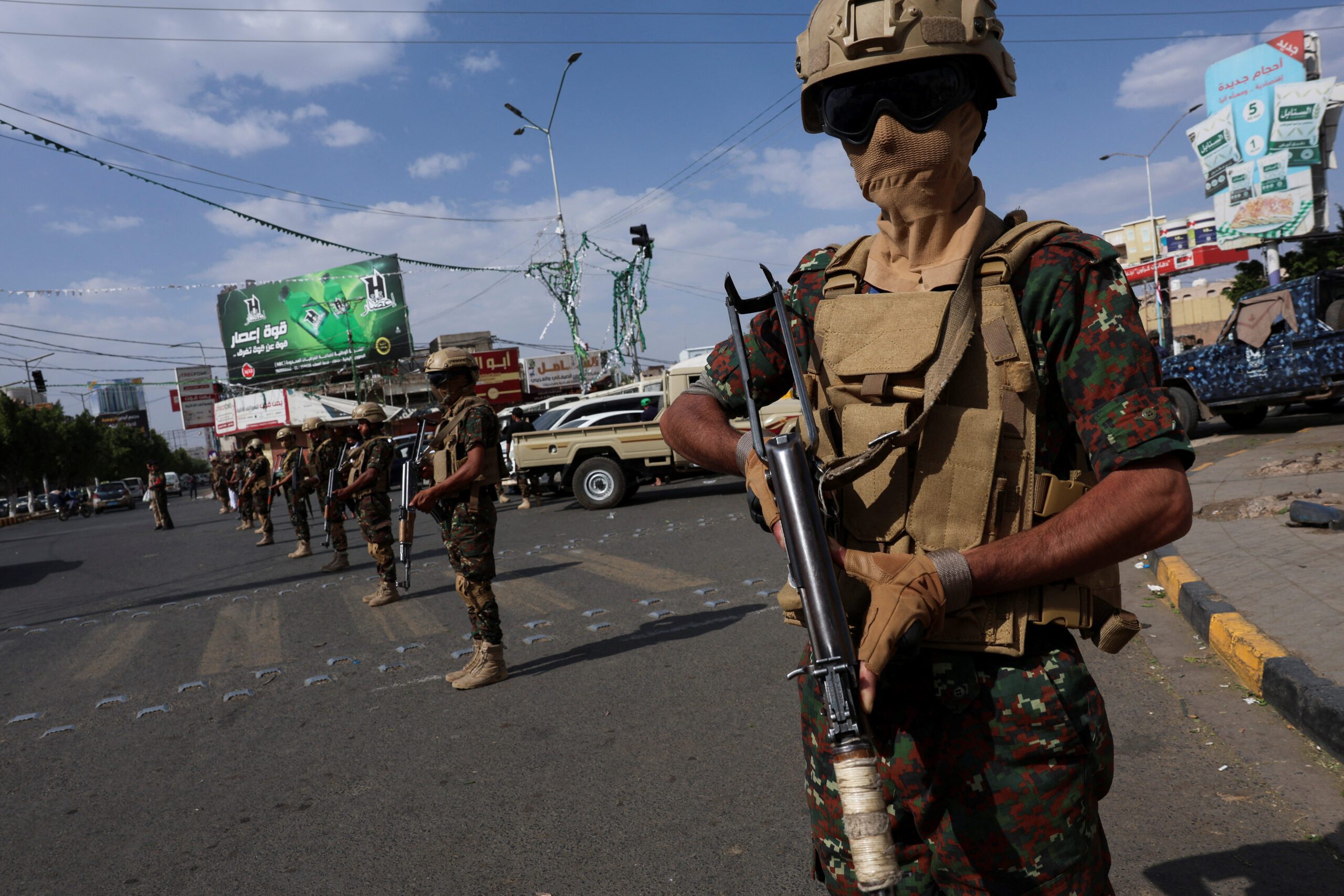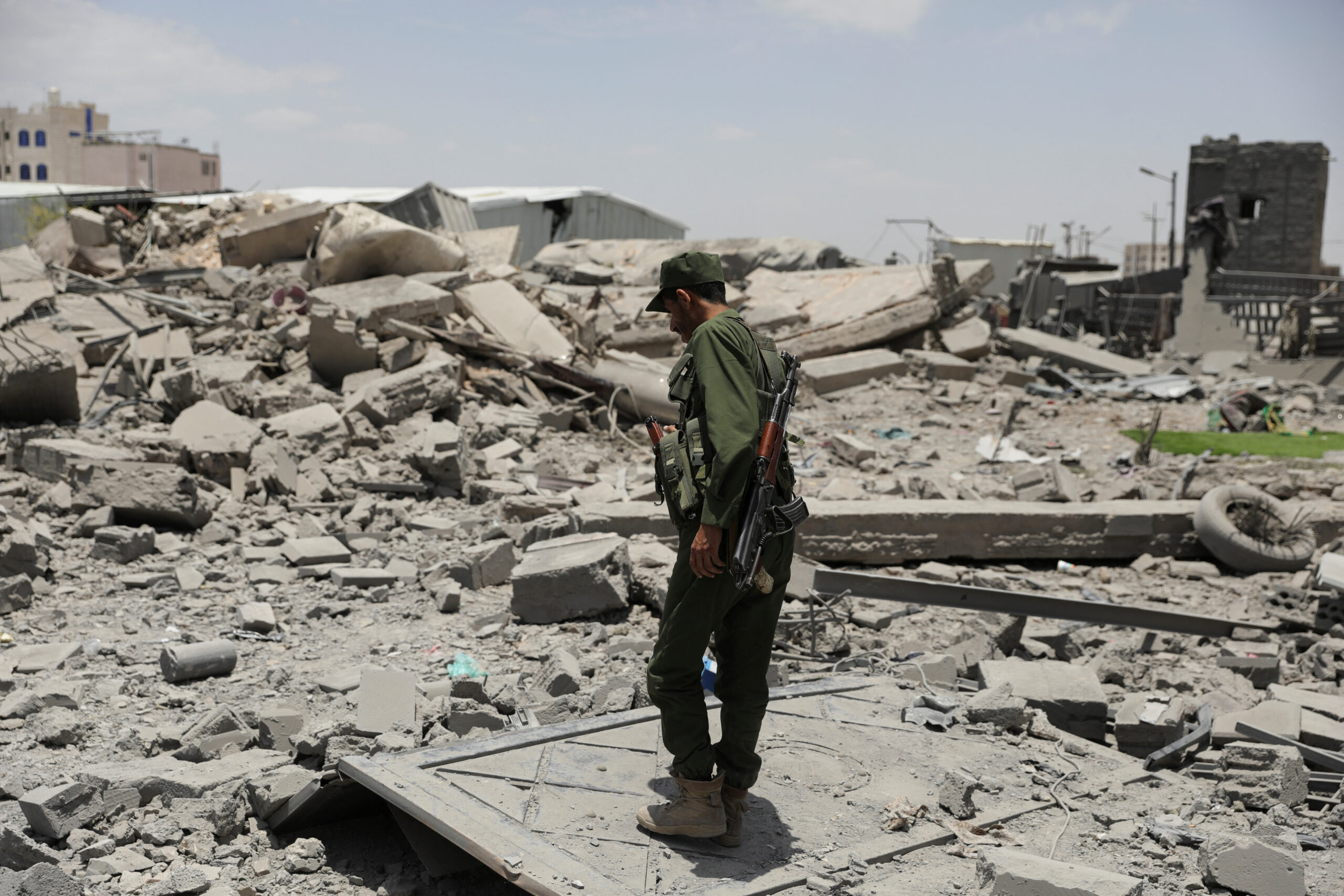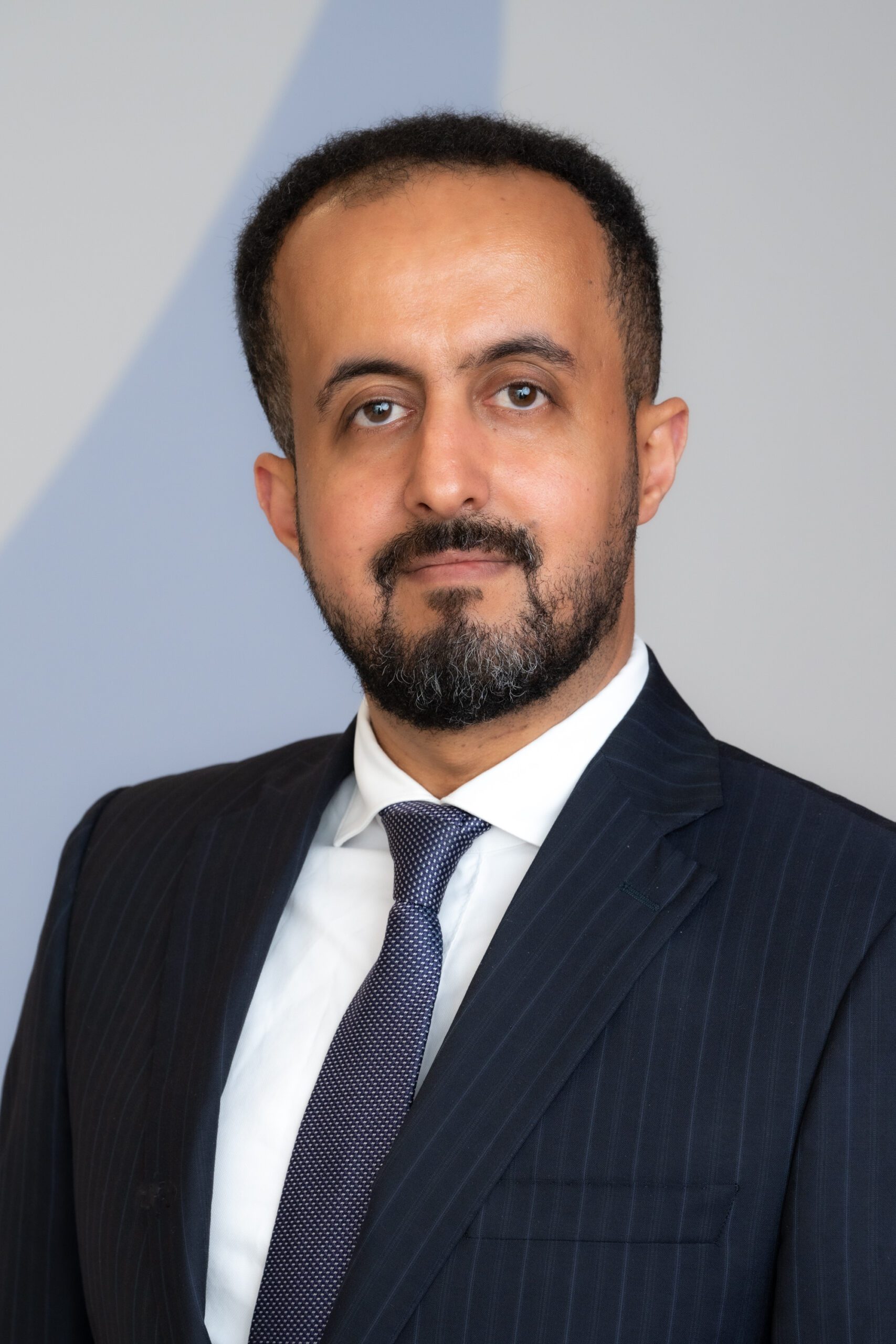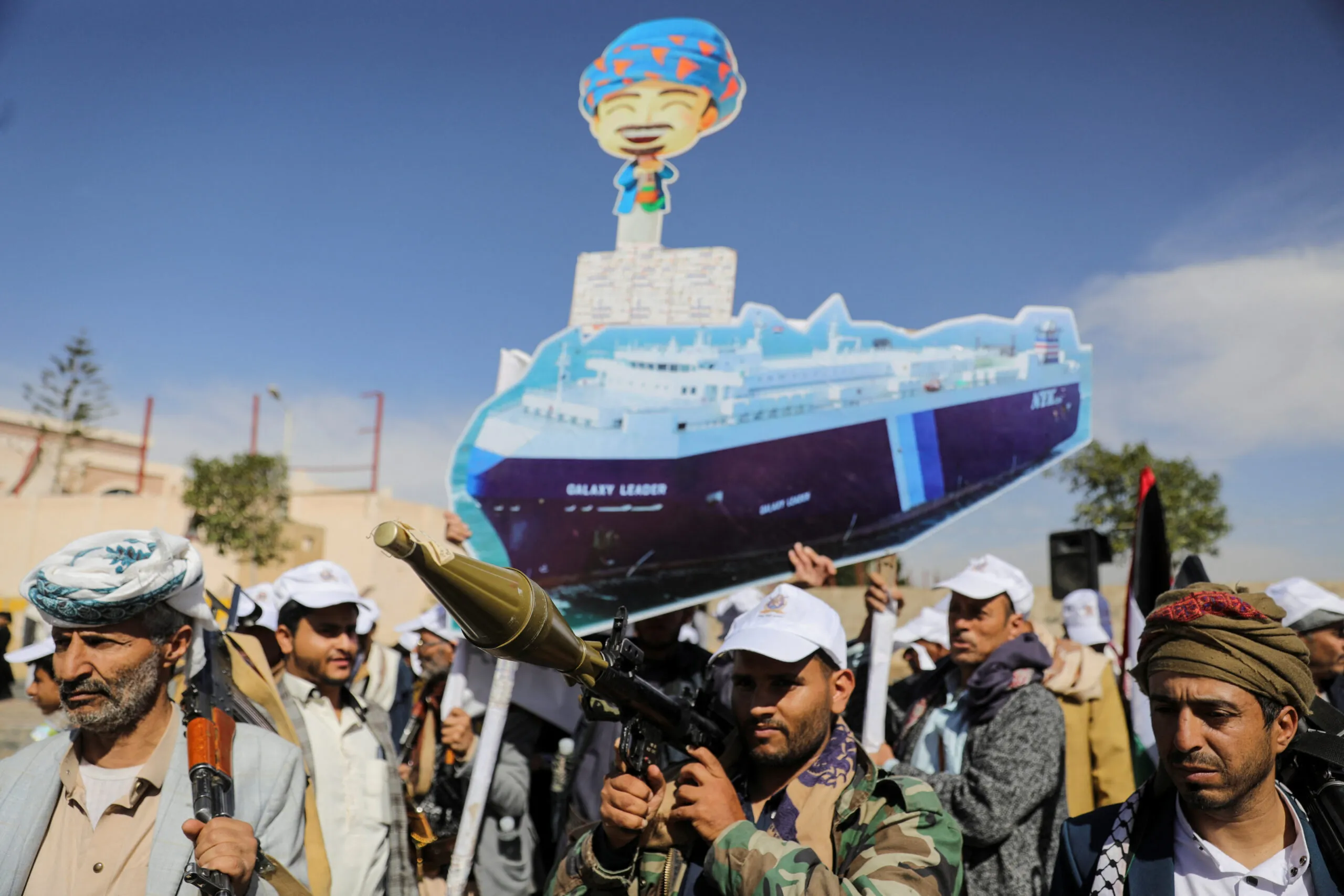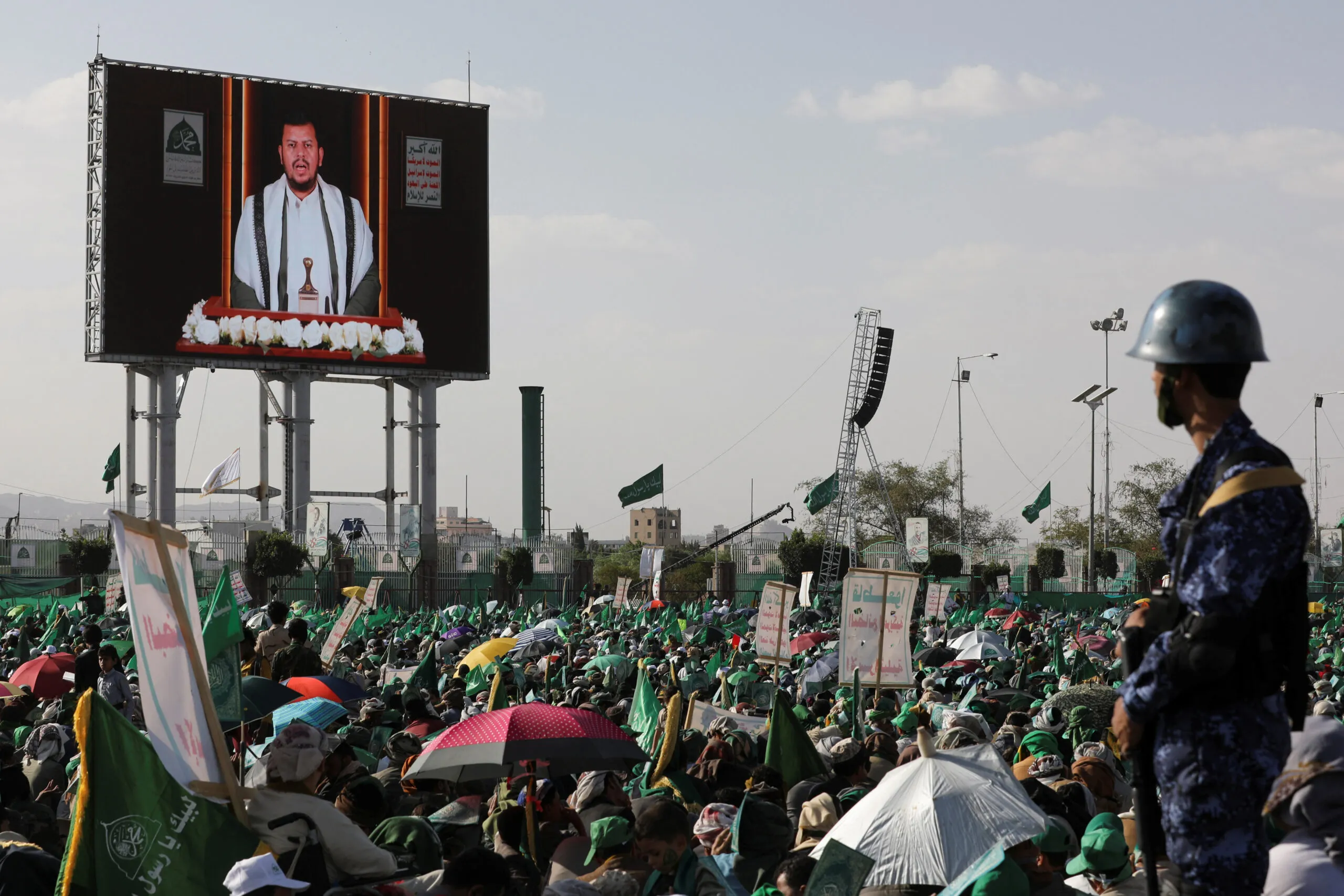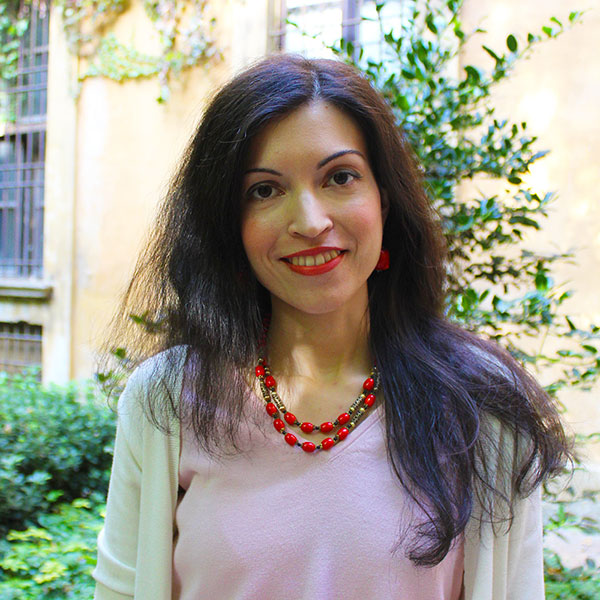A Grand Bargain for Yemen
The next U.N. special envoy for Yemen will be uniquely positioned to spearhead a grand bargain that might be the international community’s last chance to reconstitute Yemen as a single state.

On June 15, Martin Griffiths, the outgoing United Nations special envoy for Yemen, gave his final briefing to the Security Council. Griffiths’ assessment of the conflict and its future trajectory was stark and bleak. “Time is not on Yemen’s side,” he wrote in his prepared remarks. “Over the course of the conflict, armed and political actors have multiplied and fragmented. Foreign interference has grown not diminished. What was possible in terms of conflict resolution years ago is not possible today. And what is possible today may not be possible in the future.”
Griffiths is right to be pessimistic. He is the third U.N. special envoy to try and fail to bring an end to the war in Yemen. Not only have Griffiths and his predecessors failed, but over the course of their successive tenures, the fighting in Yemen has grown progressively and significantly worse. What was once for the most part a binary conflict that would have required an agreement between the Houthis and government of President Abd Rabbu Mansour Hadi is now a multifaceted war with at least four major domestic armed groups and an assortment of outside powers, all of which must sign off on any comprehensive peace deal.
Yemen needs a new approach. Without it the next special envoy will produce the same results as the previous three, the war will go on, and the country will further fracture into autonomous political zones held by whichever warlord is strongest.
When a conflict is as intractable as the one in Yemen, the temptation is to try and solve it in pieces. Negotiators push for small steps, confidence building measures, that they hope can inch the parties toward a solution. This simply won’t work in Yemen.
The last six years of war have made two things clear. First, the Yemeni parties are unable to resolve this conflict on their own. Indeed, many of them benefit financially from the fighting and believe it is in their long-term interests to prolong the conflict. Negotiations require compromises; continued fighting does not.
Second, piece-meal solutions and interim steps will not work. Griffiths tried this repeatedly, spending much of his last year campaigning for a “joint declaration” of a national cease-fire and humanitarian measures as a first step toward peace talks. That didn’t work. But neither did the December 2018 Stockholm Agreement, the one deal he managed to broker.
In Stockholm, Griffiths caved to the pressure of getting a deal to demonstrate progress. Unfortunately, that deal was badly rushed and tragically flawed. One of the provisions on the future of Hodeidah failed to define what was meant by “local security forces,” ultimately allowing one group of Houthi fighters to turn control of the city over to another group. The Stockholm Agreement’s deal on prisoner exchange may also have, as Nadwa Dawsari has argued, incentivized the taking of captives. Perhaps, most importantly, the Stockholm Agreement allowed the Houthis to redeploy fighters from Hodeidah to Marib, where they are taking part in the current offensive.
Yemen needs both international support and a comprehensive plan. It needs the sort of grand bargain that can tie all the facets of the conflict – both domestic and regional – into a single package. Otherwise, Yemen could easily slip into a nightmare scenario in which Saudi Arabia strikes a deal with the Houthis, the local civil war is left unaddressed, international attention wanes with the Saudi withdrawal, and the fighting continues on the ground.
Pulling off this grand bargain, of course, will not be easy. But it is likely the international community’s last chance to reconstitute Yemen as a single state. Given the complexities of such a deal and the various international actors involved, the next U.N. special envoy will be uniquely positioned to spearhead such an effort.
U.S. leadership and involvement are necessary but not sufficient for success. The United States has enough leverage with both Saudi Arabia and the United Arab Emirates – and by extension Hadi’s government as well as the Southern Transitional Council, which maintains control of large amounts of territory in southern Yemen – to deliver these parties to any proffered equitable peace deal. The United States can also provide security guarantees to Saudi Arabia to protect its southern border in the event of future Houthi incursions or missile attacks. What the United States cannot do, however, is compel the Houthis to negotiate in good faith. For that the United States will need the assistance of Iran and Oman, both of which maintain good relations with the Houthis.
The United States should link the Houthis and the war in Yemen to negotiations over a renewed Joint Comprehensive Plan of Action nuclear agreement with Iran, which is currently being discussed in Vienna. At the moment, the Houthis see continued conflict in Yemen as being in their best interest. Iran – one of only two countries with whom the Houthis have diplomatic relations – will need to convince them otherwise. The United States will have to lean on Saudi Arabia; Iran will have to lean on the Houthis.
Both Saudi Arabia and the UAE, which have already contributed significant amounts of aid to Yemen, will have a major role to play in financing reconstruction in Yemen. Although the bill for this is likely to be high, it will still be much less than the continued cost of an open-ended conflict in Yemen.
Russian support and buy-in will also be essential. Not just at the U.N., but also for convincing Tariq Saleh, who heads the National Resistance Forces on the Red Sea coast, that his interests are best served by being part of a unified Yemeni state. Saleh, who is the nephew of former President Ali Abdullah Saleh, recently traveled to Moscow for consultations. Unlike most countries, Russia did not withdraw its embassy from Sanaa following the Houthi takeover in late 2014. Instead, Russia strengthened ties with Ali Abdullah Saleh, then a Houthi ally, only closing its embassy after he was killed in 2017. Russia now looks to be reprising its relationship with the Saleh family through Tariq.
Similarly, China, which is eager to expand its Belt and Road Initiative and is looking for calm shipping lanes and regional stability, can play a positive role in encouraging the various parties to the conflict to negotiate under U.N. auspices. Both Russian and Chinese support will be essential at the Security Council, where they would need to back a revamped sanctions program to limit spoilers.
The U.N. has appointed three special envoys to Yemen. Each one has left office without a deal and, as Griffiths noted, the conflict continues to grow ever more complex. The next special envoy will be the U.N.’s fourth attempt, and it may well be the last special envoy with a chance to reconstitute Yemen as a single state. Nibbling at the edges of a deal and more rounds of shuttle diplomacy will do little but extend an already lengthy war. In Yemen, it is time for a change and for the special envoy to spearhead a truly international approach. The alternative is a fractured and fragmented state, which no one group fully controls. In such a scenario the humanitarian situation is likely to grow worse, shipping lanes and freedom of navigation will be challenged, and al-Qaeda’s local franchise in Yemen, which is currently on its heels, could resurrect itself and once again pose a threat to the West.
The views represented herein are the author's or speaker's own and do not necessarily reflect the views of AGSI, its staff, or its board of directors.

